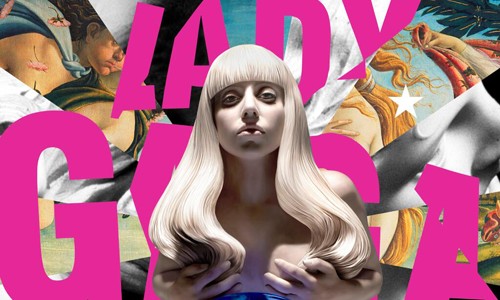Photo courtesy of Finterscope Records
As Our Lady of Pop, Lady Gaga, releases singles from her newest album ARTPOP (available on iTunes Nov. 11 2013), fans understand a new side of Gaga that perhaps she herself is trying to comprehend.
With a mix of expository lyrics and a pop/dance sound, the album is a display of Gaga’s exploration as an artist. ARTPOP seeks to explain her multifaceted persona and the art she creates. Though Gaga has had a history of shocking people with her singles, (who can forget Gaga’s hit “Judas” released just before Easter in 2011?), her release of ARTPOP songs have been well received. Her first released single from the album, “Applause,” is currently number nine on the Billboard Hot 100.
I have yet to decide whether “Applause” qualifies as “good music”. It was used for a KIA commercial and the lyrics are a little nonsensical. Yet, it is one of the most played songs on my iTunes library. To explain the song, it is fitting to reiterate something YouTuber Jenna Marbles once said about the beats in Gaga’s songs; they “would make even Jesus Christ himself want to dance.” “Applause” is a song in which Gaga celebrates herself. It also seems to be homage to her fandom.
One of the strong points of ARTPOP is that it showcases Gaga as a connoisseur of all genres of music. This is apparent in the song “Do What U Want.” In collaboration with R. Kelly, the song leans towards R&B with a touch of soulful rock and roll. “Do What U Want” takes the scrutiny Gaga receives from the press and equates it to a kind of sexual advancement. The chorus declares “You can’t have my heart, and/You won’t use my mind but/Do what you want with my body.”
Gaga also continues to advocate for self-discovery among her fans especially when it comes to her LGBTQ alliances. In ARTPOP she incorporates strong self-image messages. One song that has not yet been released, “Aura,” explores sexual empowerment. In the song, Gaga says that knowing true nakedness is also knowing your partner’s purest self.
“Aura” recently became controversial during the 2013 iTunes Festival in London, when Gaga performed “Aura” donned in a Hijab, the veil and head covering of Muslim women. In the song she sings, “I’m not a wandering slave I am a woman of choice/My veil is protection for the gorgeousness of my face.” Gaga implies that all women have some form of façade they must maintain in order to protect their deeper selves.
Another song that takes on shock value is “Venus,” which sounds typically disco. However, Gaga’s stellar vocals make it more substantial than that of “Applause.” The subject of what or who “Venus” is seems to be a conundrum. In one sense Venus is the goddess of love, but Venus is also a planet of ecstasy. In the song, Gaga lists the planets as she reaches “Uranus,” at which point adds “don’t you know my ass is famous?”
ARTPOP is not only intriguing to diehard fans who feel as if they already know everything about Lady Gaga. The album is also a tool for those who are still trying to figure Gaga out, and for Gaga to continue her enduring identity crisis.



















































































































